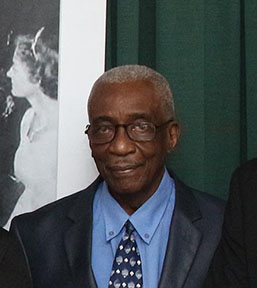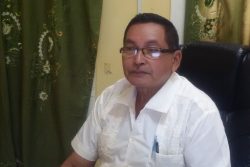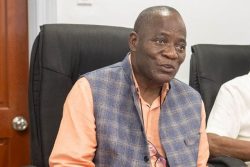The Chairman of the Guyana Elections Commission (GECOM), retired judge James Patterson, has notified President David Granger that the Commission will be ready to host general and regional elections by late November following the completion of a new national house-to-house registration process.
In a letter to Granger, dated March 19th, Patterson explained that the timeline was arrived at after engagement with the GECOM Secretariat to determine the most feasible course of action to be pursued.
“In consideration of …the fulfillment of the various conditions highlighted, the removal of the external impediments, and based on the advice I have been given by the Chief Elections Officer, I would proffer that the Commission would be in a position to conduct General and Regional Elections no later than late November 2019 with an Official List of Electors having a qualifying date of 31st October 2019,” the Chairman wrote.
He also indicated that the Commission would need “an amount of $3.5 billion” and stressed that “additional resources” would be needed to facilitate an early end to the house-to-house process, which the Secretariat originally projected would be concluded in February 2020.
“Significant critical path activities associated with the elections cannot commence prior to the availability of these funds to the commission,” Patterson said, while advising that “in the circumstances, no election date should be contemplated less than five months after these funds are placed at the disposal of and under the control of GECOM.
The letter from Patterson is in response to Granger’s request that the Commission provide him with a timeline for credible elections as well as an outline of its financial needs.
“I urge you to present your plans, programmes and financial needs which will guide my proclamation of a suitable date for elections,” the Head of State said in correspondence to Justice Patterson on March 13th.
While the government-nominated commissioners have welcomed Patterson’s letter as a step forward, the opposition-nominated commissioners have declared it “improper and illegal.”
“In my view, this letter is clearly improper in terms of the process at the Commission. It is illegal in view of the constitutional duty of the Chairman and the Commissioners based on their duty, which they swore to uphold the constitution without fear or favour,” PPP/C-nominated Commissioner Robeson Benn told reporters at a press conference yesterday.
He went on to note that as a clear violation of GECOM’s mandate to uphold the constitution, the letter should not be allowed to stand since it is clearly intended to put the country in a “crisis” situation.
Benn along with fellow PPP/C-nominated Commissioners Bibi Shadick and Sase Gunraj contended that the Chairman had overstepped his mandate by sending a letter on behalf of the commission without consulting the commission.
“It certainly does not look like the work of the Chairman,” Gunraj noted, before arguing that it is part of a crescendo of events engineered to delay the holding of elections following the passage of a no-confidence motion on December 21st, 2018.
“First you hear it was funding. Now, it is the need for house-to-house registration. None of these are real and credible reasons for the delay in the holding of elections,” Gunraj stressed.
Article 106 provides for elections to be held within three months of the passage of a no-confidence vote against government or a longer period agreed by at least two-thirds of the National Assembly.
GECOM has, however, argued that it would need at least 148 days to prepare for elections.
In his letter, Patterson stressed that the Secretariat had communicated this information to the commission since February 4th.
“As of February 5, 2019 the Commission was intimately aware that it was impossible to conduct elections within three months’ time frame commencing December 21, 2018 and that it was also impossible to do so on any date prior to and including April 30, 2019,” he wrote before claiming that the process to arrive at “pivotal decisions” has “continuously been frustrated by the withdrawal of some commissioners from our official meeting.”
The opposition-nominated commissioners, who have so far walked out of five meetings, took umbrage to this claim.
Benn reminded that Commissioner Shadick had repeatedly reserved the right to walk out of any meeting which did not address an election work programme. All of the meetings aborted, he maintained, dealt with the question of house-to-house registration rather than elections.
The government-nominated commissioners along with Chairman Patterson had voted to proceed with house-to-house registration as part of the Commission’s “unanimously approved work programme for 2019” and concluded based on advice from the Ministry of Finance that they could not reallocate funds approved for the process to prepare for polls.
Shadick noted that there is no “unanimously approved work programme;” rather, she said there is an approved budget proposal but the issue of elections has since overtaken those contained in that proposal.
Despite this contention, Patterson has told President Granger that while the proposed completion of house-to-house registration is February 2020, he has been assured that with a “significant increase in the allocated resources for the exercise and an adjustment in the management arrangements for some procurement activities, the execution of the programme could be restructured to be completed at least two months earlier, in 2019.”
Should this be achieved, he argued, most of the Commission’s concern for credibility and timeliness, and indeed most stakeholders, would be addressed. “I would, therefore, urge you to support this by providing the required additional resources and appropriate guidance to those agencies and authorities whose co-operation is required if our objectives are to be achieved,” Patterson added.









